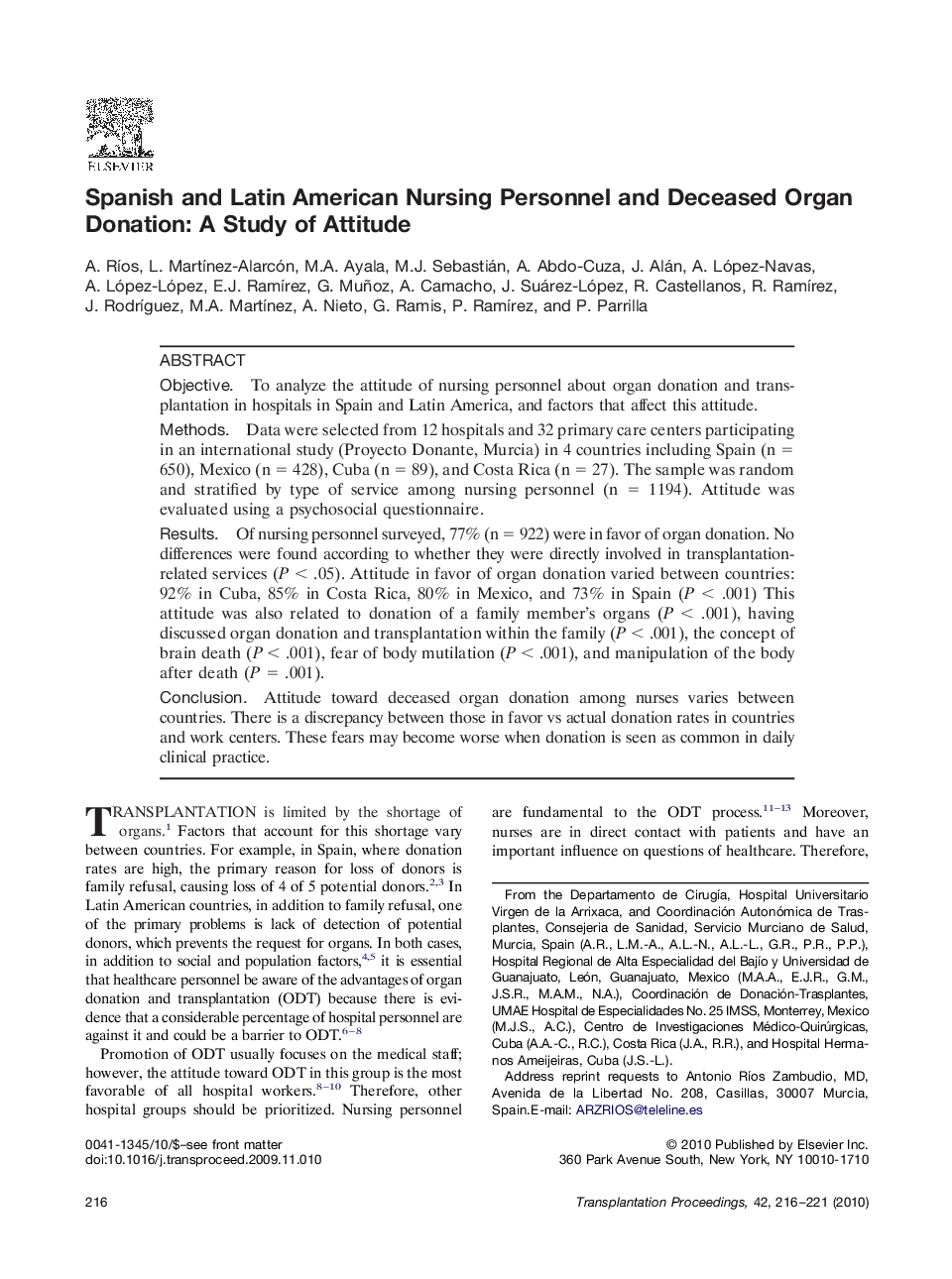| Article ID | Journal | Published Year | Pages | File Type |
|---|---|---|---|---|
| 4260854 | Transplantation Proceedings | 2010 | 6 Pages |
ObjectiveTo analyze the attitude of nursing personnel about organ donation and transplantation in hospitals in Spain and Latin America, and factors that affect this attitude.MethodsData were selected from 12 hospitals and 32 primary care centers participating in an international study (Proyecto Donante, Murcia) in 4 countries including Spain (n = 650), Mexico (n = 428), Cuba (n = 89), and Costa Rica (n = 27). The sample was random and stratified by type of service among nursing personnel (n = 1194). Attitude was evaluated using a psychosocial questionnaire.ResultsOf nursing personnel surveyed, 77% (n = 922) were in favor of organ donation. No differences were found according to whether they were directly involved in transplantation-related services (P < .05). Attitude in favor of organ donation varied between countries: 92% in Cuba, 85% in Costa Rica, 80% in Mexico, and 73% in Spain (P < .001) This attitude was also related to donation of a family member's organs (P < .001), having discussed organ donation and transplantation within the family (P < .001), the concept of brain death (P < .001), fear of body mutilation (P < .001), and manipulation of the body after death (P = .001).ConclusionAttitude toward deceased organ donation among nurses varies between countries. There is a discrepancy between those in favor vs actual donation rates in countries and work centers. These fears may become worse when donation is seen as common in daily clinical practice.
